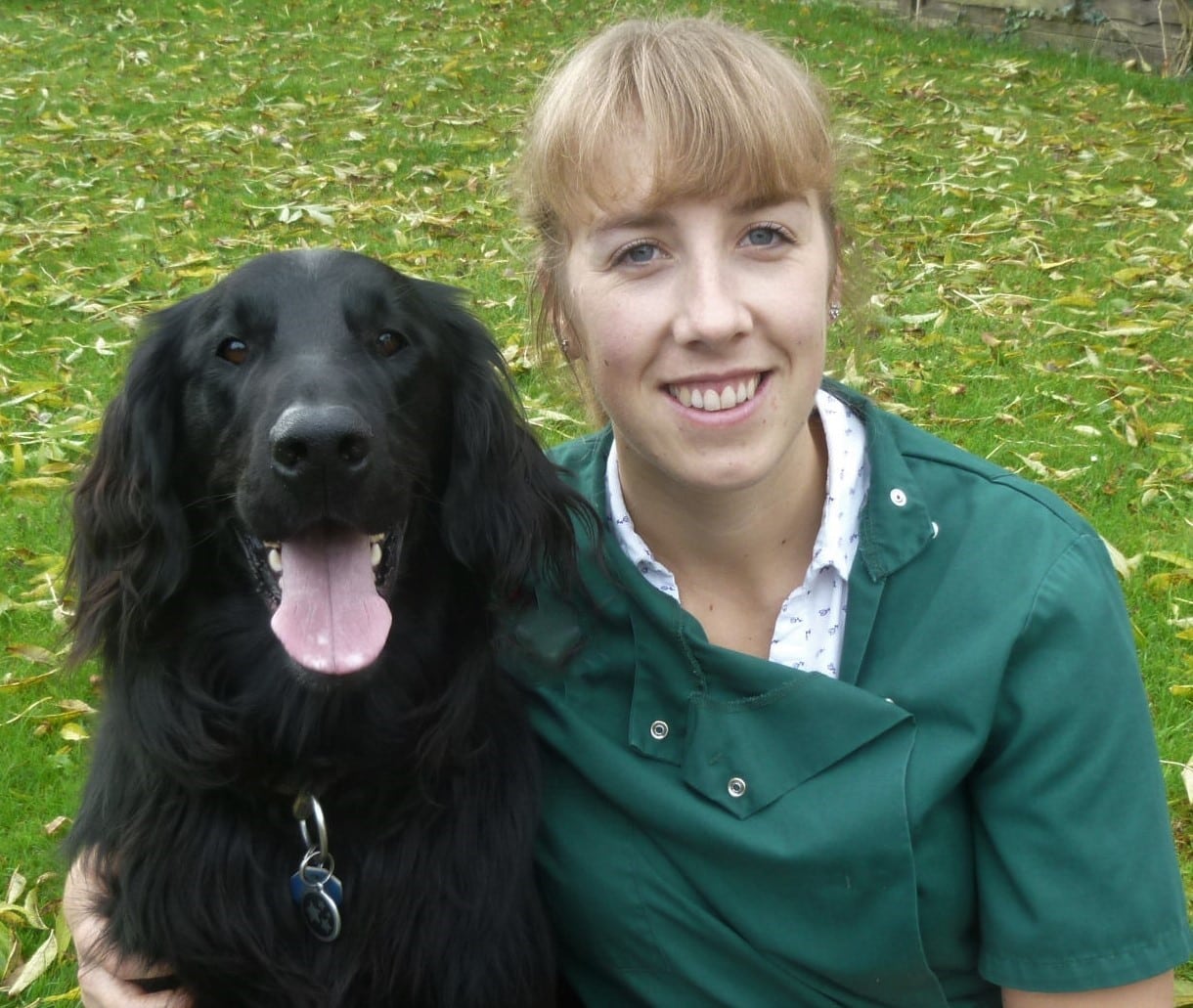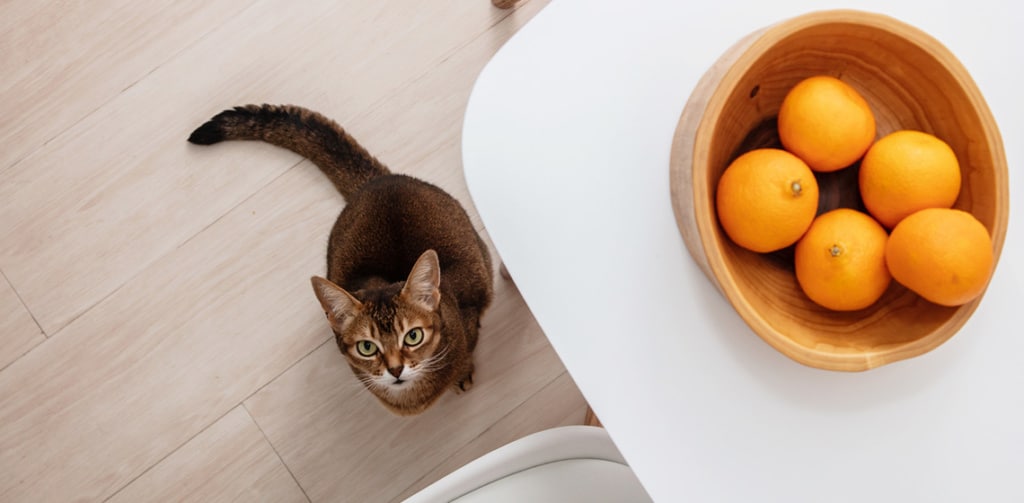Cats are obligate carnivores, which means that they are meat-eaters. Most cats will therefore turn their nose up at fruit when offered it. This is partly due to the fact they lack taste receptors for sweet things so they don’t get the same pleasure out of eating fruits that we would. Plus, most vets would advise not feeding fruit to your cat as any nutritional benefits will be small.
However, you still get the oddball feline who is willing to give anything a try! But is it actually safe for cats to eat fruit or are there any that your pet should avoid? Let’s explore this further.
Table of Contents
What types of fruit are safe for cats?
There are a variety of types of fruit that are safe for cats to try. These include –
Apples
Apples provide a good source of vitamin A and vitamin C. They are best served with the pips/seeds removed as these can be high in cyanide, which could be an issue if eaten in very large volumes. You should also take care with any rotten, fermenting apples in your garden as these can contain high levels of ethanol (alcohol) which could cause toxicity.
Banana
This fruit provides a different type of texture that some cats may like to try. It is quite filling and high in sugars though, so only feed as an occasional treat. Bananas are a good source of potassium, fiber, and vitamin B6.
Blackberries
These may be found growing wild, although these varieties can be a bit less plump and juicy than store-bought ones. Like many other fruit and vegetables, blackberries are packed with antioxidants but are also high in natural sugars so only offer them to your cat in small amounts.
Blueberries
Blueberries are often referred to as a superfood as they are high in antioxidants (helpful as anti-inflammatories, fight against cancers, and maintain good eye health in humans) and vitamins, as well as being relatively low in calories.
Cantaloupe and watermelon
All varieties of melon flesh are fine for cats to eat including cantaloupe and watermelon. The high water content of this fruit helps with hydration, so it makes an excellent hot weather snack.
This fruit provides a different type of texture that some cats may like to try. It is quite filling and high in sugars though, so only feed as an occasional treat.
Cranberries
Cranberries are safe to feed cats though be careful with the dried version as this is often sold in packs mixed with raisins (which are very toxic to dogs and cats), so always double-check exactly what you are feeding.
Mango
Mango is very sweet and soft when ripe, containing lots of fiber and vitamins. It is perfectly safe to feed your cat if you remove the pit and skin.
Nectarines and peaches
The flesh of nectarines and peaches is perfectly safe to eat, but you should make sure your cat try doesn’t swallow the pit – so remove this before serving.
Papaya
Papaya is a good source of minerals like potassium, folate, and calcium, as well as vitamins A, C, E, and K, and is safe for cats.
Pears
Pears are very safe for cats to eat. They are high in copper, vitamin K, Vitamin C, and fiber. You should try and remove the stem, core, and seeds before serving.
Raspberries and strawberries
These berries are very nutritious and safe for cats. Raspberries in particular contain vitamins A, B, C, and E and are also rich in minerals. The antioxidants in raspberries are also thought to help with inflammatory conditions, such as arthritis, allergies, and cancer.
What fruit is dangerous for cats?
There are a few fruits you should avoid feeding your cat –
Grapefruit
Grapefruit flesh itself is not toxic to cats but is extremely acidic which may cause tummy upsets. The peel, seeds, and plant however can cause problems such as long-term gastrointestinal problems as well as possibly photosensitive dermatitis. It is best avoided in cats.
Grapes
You should never give cat grapes or raisins because of the risk associated with them. They can cause kidney failure which is potentially fatal in dogs, so it is thought that cats could be susceptible too. The exact mechanism of toxicity is unclear, so it is also hard to know exactly how many grapes will cause toxicity.
Oranges, lemons, and limes
Cats will usually avoid lemons and limes because of their strong citrus flavor. The flesh of these fruits is non-toxic but when eaten in large quantities can irritate a cat’s stomach and intestines. The skin of lemons and limes, their seeds, and the tree on which it grows however contains some toxic compounds which could be harmful, including a phototoxic chemical called psoralens plus some essential oils. Vomiting, diarrhea, lethargy, and potential skin issues could occur.
The flesh of citrus fruits is non-toxic but when eaten in large quantities can irritate a cat’s stomach and intestines.
So, should I offer my cat fruit?
As with all things, moderation is key. Even fruit that is considered safe for our pets could cause a tummy upset if given in high volumes, so just let your cat have them as an occasional treat rather than feeding in bulk. A good quality commercial diet should provide our cats with all the nutrition they require. Many of the nutrients that we rely on from plants, such as vitamin C, our cats don’t require (as with many animals, they manufacture their own source).
FAQ
Technically yes, cats can eat fruit, but most will choose not to. If your cat does try one of the safe fruits on our list then this shouldn’t cause any problems, though bear in mind that tummy upsets can occur with any change in diet.
Many fruits are safe for cats to eat in moderation, including strawberries, melon, bananas, pears, blueberries, and nectarines. Safe vegetables include green beans, peas, bell peppers, sweet potatoes, and cauliflower. However, as cats are strict meat-eaters you should stick to their normal diet when possible.
You should avoid giving your cat any members of the allium species of vegetables which includes onions, garlic, leeks, chives, and shallots. Grapes and raisins are also thought to have similar toxic effects in cats as they do in dogs, but it is not well reported (mainly because cats don’t tend to eat fruit). Other harmful human foods include chocolate, xylitol (an artificial sweetener), alcohol, and caffeinated products.

Rebecca is a companion animal vet who has always had a passion for writing and client communication. Since her graduation from the Royal Veterinary college in 2009, she has gained a wealth of experience in first opinion small animal practice, in both clinical and managerial roles. She currently works in the South West and deals with a variety of routine and emergency appointments, but particularly enjoys medicine cases. Outside of work and writing, she enjoys spending time with her family, including her bouncy flat-coated retriever George!

Rebecca is a companion animal vet who has always had a passion for writing and client communication. Since her graduation from the Royal Veterinary college in 2009, she has gained a wealth of experience in first opinion small animal practice, in both clinical and managerial roles. She currently works in the South West and deals with a variety of routine and emergency appointments, but particularly enjoys medicine cases. Outside of work and writing, she enjoys spending time with her family, including her bouncy flat-coated retriever George!








